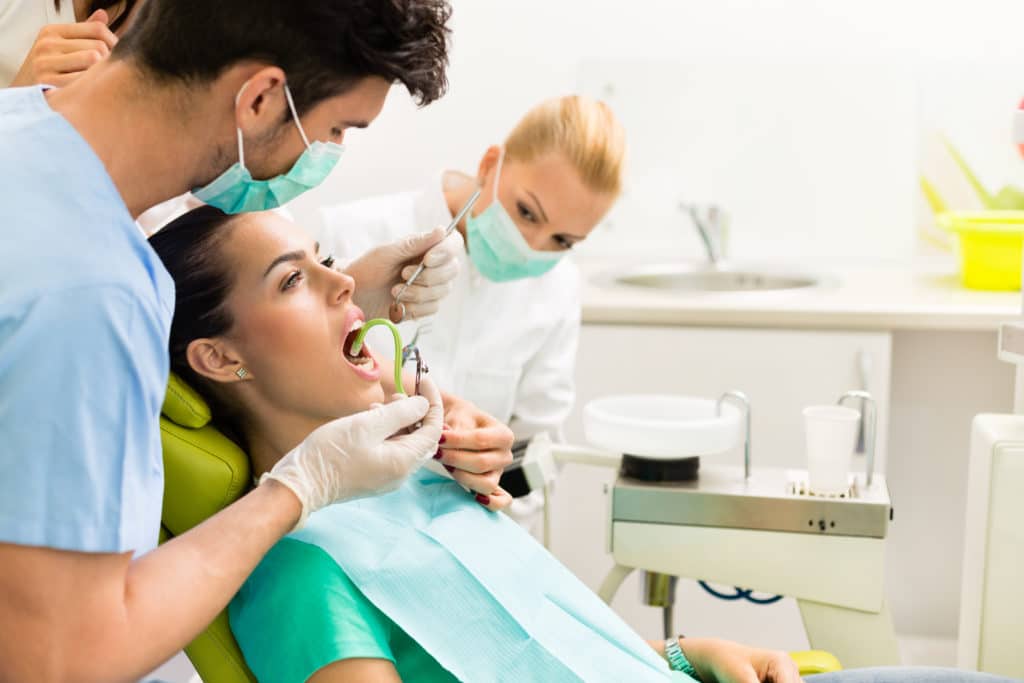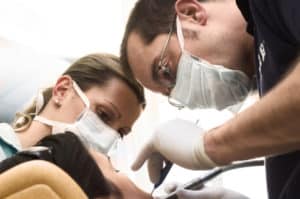
8 Considerations When You Need a Tooth Extraction in Las Vegas
1. When Does a Tooth Need to Be Extracted?
Damaged teeth are typically a result of either tooth decay, infection, or injury. Tooth decay is caused by bacteria that produce acids which erode the teeth. The damaged sections in teeth are then susceptible to infection. Trauma to the face, often from accidents or sports, may cause teeth to crack. When either of these problems occur, you may need tooth extraction from a professional in Las Vegas. If the pain and damage is severe, it’s best to schedule an emergency tooth extraction as soon as you can.
If you need a tooth pulled, don’t wait. As time passes, tooth decay or infection may worsen and spread. It is much harder to brush and floss a painful tooth, and as a result, the surrounding teeth become more likely to be damaged by bacteria. See a dentist immediately if you notice any of the following:
- Dark yellow, brown or black discoloration on the tooth
- Swelling, redness or other discoloration around the gums
- Difficulty while brushing, or chewing
- A visible crack in the tooth
- A chipped tooth, or one with sharp and jagged edges
- Tooth pain that has become a regular distraction
Keep in mind that tooth extraction is not the only option to stop pain and decay. Decayed teeth can often be saved through a root canal procedure or dental crowns. Though tooth extraction is more affordable, make sure to carefully consider all your options, such as dental implants or dentures. If you need to get a tooth pulled in Las Vegas, ask your dentist or oral surgeon about your options for replacement as well as tooth extraction.
2. Schedule a Consultation

At your consultation, your dentist can tell you what type of extraction you need, and notify you of any additional care needed. Teeth extractions fall into one of two categories:
- Simple extraction: When teeth are visible and strong enough to withstand physical force, they can be removed without surgery through a simple extraction. You’ll receive anesthetic and the dentist will remove the tooth and roots using forceps and a rocking and pulling motion. This type of extraction is easier, faster, and less expensive.
- Surgical extraction: This requires the dentist to make an incision in the gums to remove parts of the teeth, roots, or attached bone. One example of this is wisdom teeth removal, but it’s also useful for teeth that are not strong enough to be removed through simple extraction, or those that are damaged below the gum line. These procedures are more complex and more expensive.
At your consultation, your dentist should be able to give you a price or at least a price range for your extraction. They may also give you other options and prices for repairing the tooth or teeth with a root canal or crowns.
3. Compare Prices for Your Tooth Extraction
Different dentists charge different amounts for tooth extraction, and you may find that prices vary more than you thought. If your general dentist in Las Vegas, Nevada, or Arizona, is not a Boston Dental Group office, then ensure that you schedule a consultation with one of our dental offices to ensure that you have access to the best care and cost for your procedure. If your pain is unmanageable, schedule just one consultation and complete your price comparisons by phone for your recommended procedure. Even if you do not have dental insurance or medical insurance, you can still have a tooth pulled in Las Vegas safely and affordably.
4. Compare Reviews
While it doesn’t make sense to pay more than you should, don’t let price endanger your oral health. Ask friends and family members about their dentists, and compare online reviews as well to make sure you are working with a qualified professional. Though most tooth extractions are safe and relatively risk-free, complications can arise if the extraction is not done properly. Never attempt to extract a tooth yourself and never get a tooth extraction from anyone other than a professional dentist, orthodontist, or oral surgeon. Resulting infections, bleeding, nerve damage, displaced blood clots, and other complications resulting from improper extractions can cause severe pain, permanent injuries, and even fatalities.
5. Get a Zero-interest Payment Plan
Many dentists in Las Vegas, including all Boston Dental Group offices, offer dental financing plans to make dental procedures easier to pay for. This means you don’t have to wait or save up to get a tooth pulled and stop pain and infection from spreading.
When you need a tooth extraction in Las Vegas, you can save money by choosing a dentist who offers zero-interest payment plans. With this plan, you pay only the cost of the procedure over a series of payments, with no interest tacked on. If you were considering putting the expense on a credit card and making payments, or borrowing money with interest, a zero-interest payment plan with your dentist is a more economic option.
6. Tell Your Dentist About Your Medical History
Some medical conditions can affect anesthesia and can cause excess bleeding during tooth extraction. During your consultation or before tooth extraction, tell your dentist about your medical history, particularly if you have bleeding conditions, heart conditions, allergies, or medications you’re taking. If you’re extremely nervous about the tooth extraction or you have an anxiety condition, ask about a prescription for a mild sedative before the procedure. This can help to make the extraction process easier and less intimidating.
7. Understand Aftercare Directions
After you have a tooth pulled, it’s very important to take care of the extraction site. This is similar to any other surgical procedure, and complications can result if you do not follow aftercare instructions. Your Las Vegas dentist will provide aftercare directions. If you have questions or you aren’t sure what to do, ask. Following all aftercare instructions will help to ensure your mouth and gums heal quickly and effectively.
Your dentist or orthodontist will explain the following as they apply to you, depending on the type of extraction you have:
- After you have a tooth pulled, eat only soft foods like yoghurt, bananas, soup and jello for a short period of time
- Use pain medicine only as directed. Be wary of using opioid painkillers, as they carry a high risk of addiction.
- As you rest, elevate your head.
- Use ice to reduce swelling.
- Brush and floss according to your dentist’s directions. This may mean avoiding brushing and flossing the area for a short time, and using a gentle rinse instead.
- For a set period of time, don’t smoke or use a straw. This can dislodge the blood clot and cause a very painful condition called a dry socket.
- You may feel some pain and soreness after the extraction. However, if the pain gets worse, you should contact your dentist right away.
- If you notice discoloration, a persistent bad taste in your mouth, persistent bad breath, fever, nausea, or nose bleeds, contact your dentist.
- Unless your dentist used a localized anesthetic, you should not drive yourself home. Arrange for someone to drive you home and, ideally, stay with you for the first few days of your recovery.
8. What to Expect From Recovery
After you get a tooth pulled, whether you have a simple extraction or a surgical extraction, you’ll want to give yourself some recovery time. You will feel some pain and soreness as the extraction site begins to heal, and you don’t want to over-exert yourself. If you had a surgical extraction, you’ll need more time to recover.
First and foremost, follow your dentist’s instructions. Keep the above aftercare instructions in mind, as well as the following instructions as you recover.
- Give yourself at least two or three days to rest and heal, unless your dentist instructs you otherwise. Avoid strenuous exercise and exertion during this time.
- Stay with a trusted friend or relative for the first few days as you recover. Complications are rare, but if they occur, it’s good to have someone available to help you.
- The pain and soreness after getting a tooth pulled should improve noticeably over the next two or three days. If it doesn’t or it gets worse, contact your dentist.
- It will take three to four weeks for the extraction site to heal, depending on the type of extraction and how many teeth were pulled. During this time, avoid hard and crunchy foods that could damage the sensitive tissues as they heal.
If your tooth is causing you pain, making it difficult to eat and brush, don’t wait for the problem to get worse.
Call us now or schedule an appointment at one of our offices in regard to your tooth extraction. During the consultation, we will provide a recommendation for your care, a quote for services, and discuss insurance and financing as needed for your extraction.
